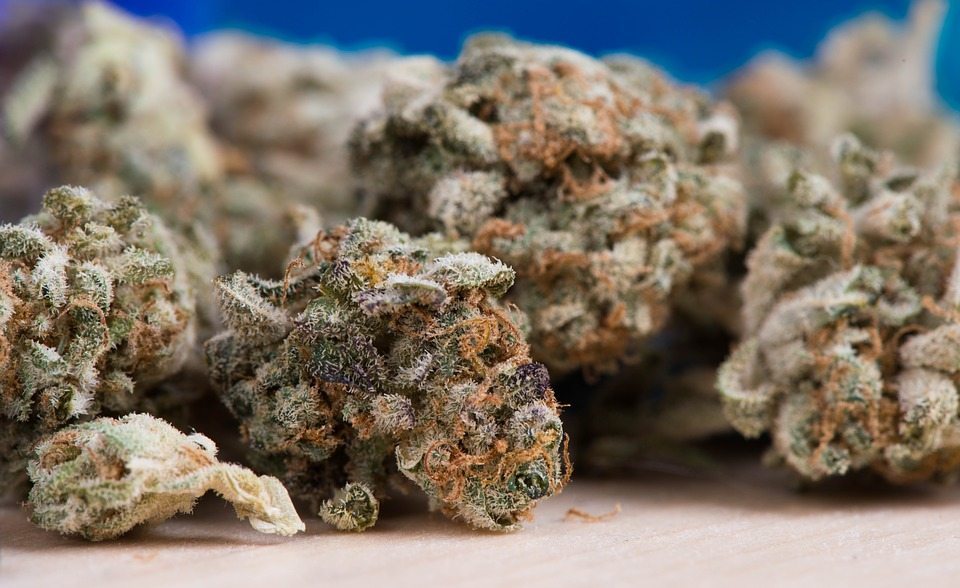B.C. is lagging behind almost all of Canada in legal cannabis sales.
Statistics Canada data shows that since it became legal last October, B.C. sold $19.5 million worth of legalized pot.
Only P.E.I., with $10.7 million, sold less.
Alberta led the way, bringing in nearly $124 million in revenue from legal cannabis sales.
B.C. had only one legal retail store open in October; that number slowly increased to about 15 by March.
It now has about 61.
From October to March, the BC Liquor Distribution Branch (BCLDB) reported sales of 2,084 kg of cannabis. Most of that was retail sales to consumers, but some was wholesale to private stores.
Industry expert Michael Armstrong, who is an associate professor of operations research at Brock University, says there are a few factors at play.
Armstrong said a shortage of dry cannabis products stores put a dent in sales nation-wide.
“The licensed producers simply weren’t processing and shipping very much dry cannabis throughout the fall and winter,” he said. “Processing rates started to pick up in the spring but of course that was too late for the last fiscal year.”
Armstrong added that a slow roll out of retail stores also impacted sales.
“When cannabis sales started in October, B.C. only had one government store open in Kamloops,” he said. “What we quickly learned from other provinces, particularly Atlantic provinces (and) Quebec where they had both stores and websites open, is that most cannabis consumers preferred to buy in stores.”
Armstrong said the fact that B.C. only had one store and website early on, meant that a lot of customers didn’t have their preferred place to shop.
He also suspects that the B.C.’s extremely strong black and grey markets hampered revenue.
“In particular you had stores in Victoria and Vancouver, which even though they weren’t legal under federal and provincial law, had actually gotten licenses from the city,” Armstrong said. “So you actually had a grey market in addition to all the black market dealers.”
Armstrong said this will continue to pose challenges moving forward.
“Like in any other industry, if consumers find a retailer that they like, is giving them a good product at a decent price, they get accustomed to going there and they are resistant to change.”
In its annual report, the B.C. Liquor Distribution Branch lays the blame on supply shortages and slower than anticipated provincial and municipal approvals.
This, it says, has resulted in the B.C. cannabis industry evolving at a slower than expected rate.
“The challenges faced in B.C. are consistent in other jurisdictions in Canada,” the LDB said.
Legal pot sales across the country are facing stiff competition from the black market, notes the LDB.
Statistics Canada estimates that in Canada, cannabis-related expenditures in the fourth quarter of 2018 were $2.2 billion, with 65 per cent illegal and 35 per cent legal.
In the first quarter of 2019, a StatsCan National Survey reported that fewer cannabis consumers “indicated that they were obtaining cannabis from illegal sources compared to the prior year.”
“The LDB pricing strategy is focused on being competitive with the illicit market and to encourage purchases from the legal market,” the report noted.
In central and northern Vancouver Island, there is a smattering of stores open.
Courtenay has denied three of nine rezoning applications for recreational cannabis stores in the community.
A government store opens tomorrow at the Superstore Shopping Mall.
City Cannabis opened the first recreational cannabis store in the Comox Valley opened on Aug. 12 at the Comox Mall.
In Campbell River, a government store opened on July 31st at the Discovery Harbour Shopping Centre.
It was the first of its kind on Vancouver Island and one of four government-run stores in B.C.
Further north in Port Hardy, there are two private stores up and running.
Currently, there are no legal stores, government or private, open in Powell River.
However, there are six applications for private stores in the works and a government store is set to open in the fall.






